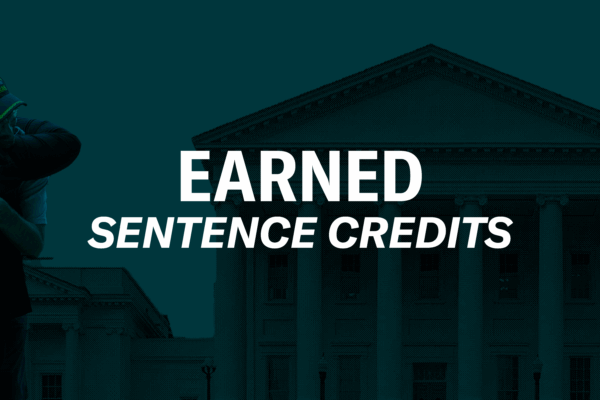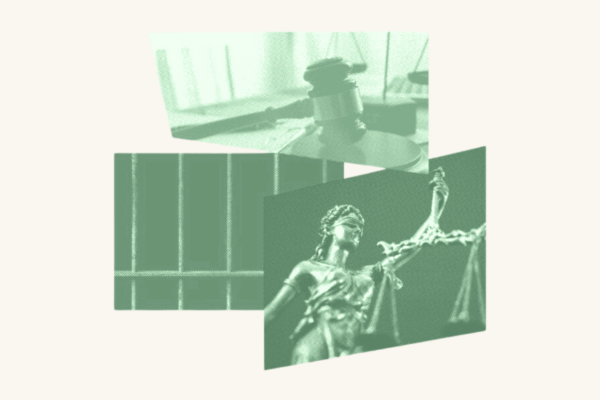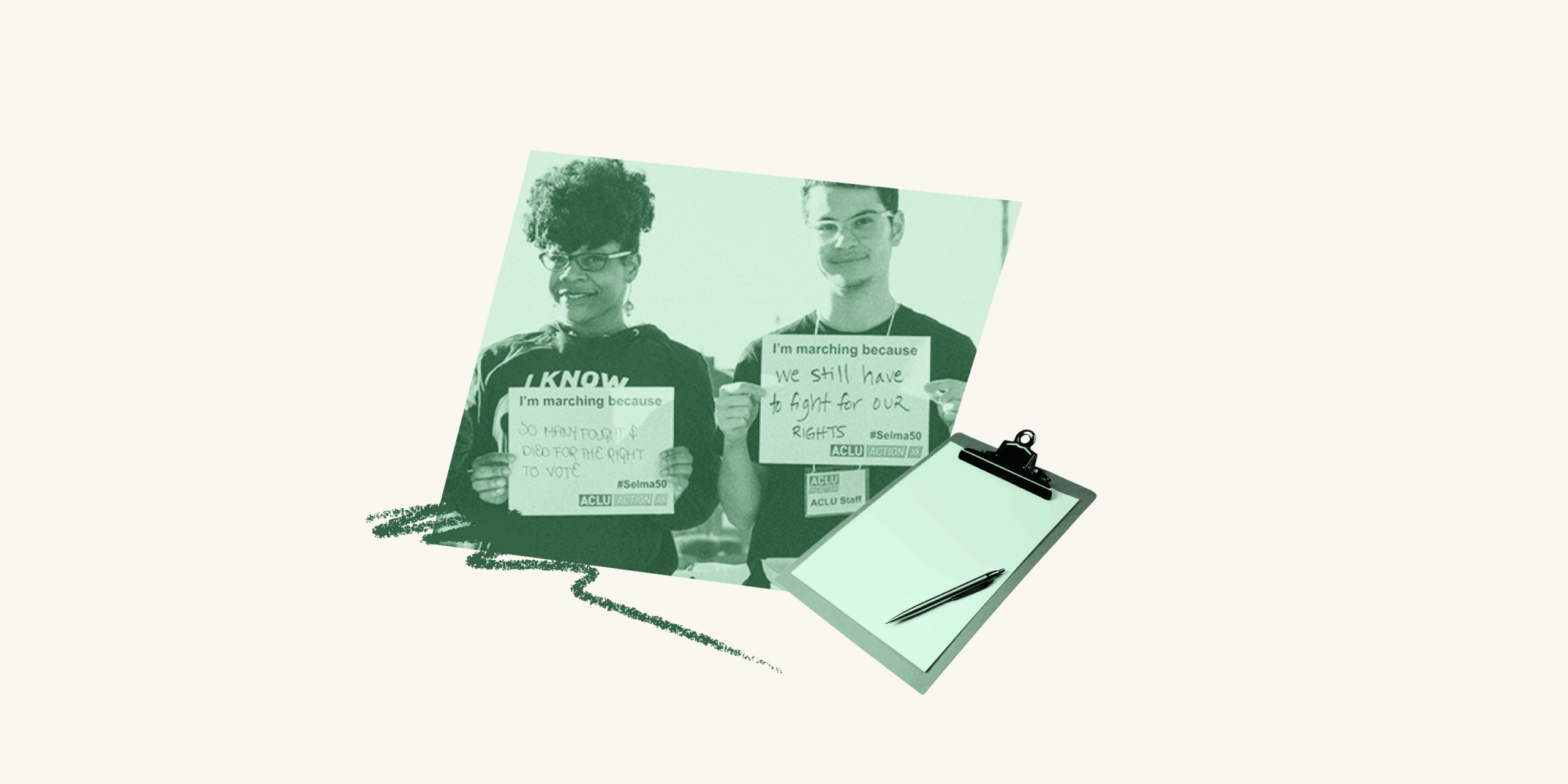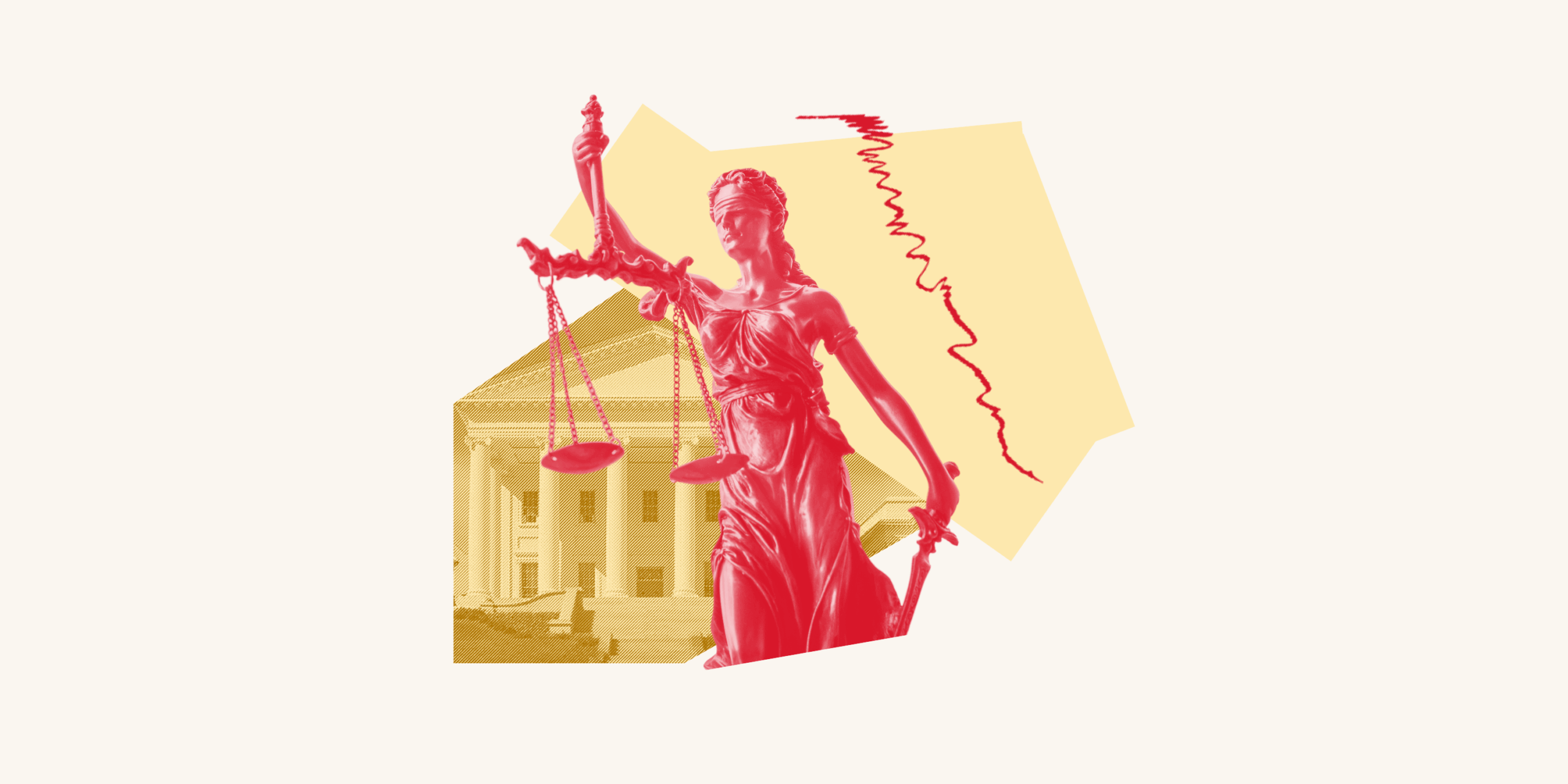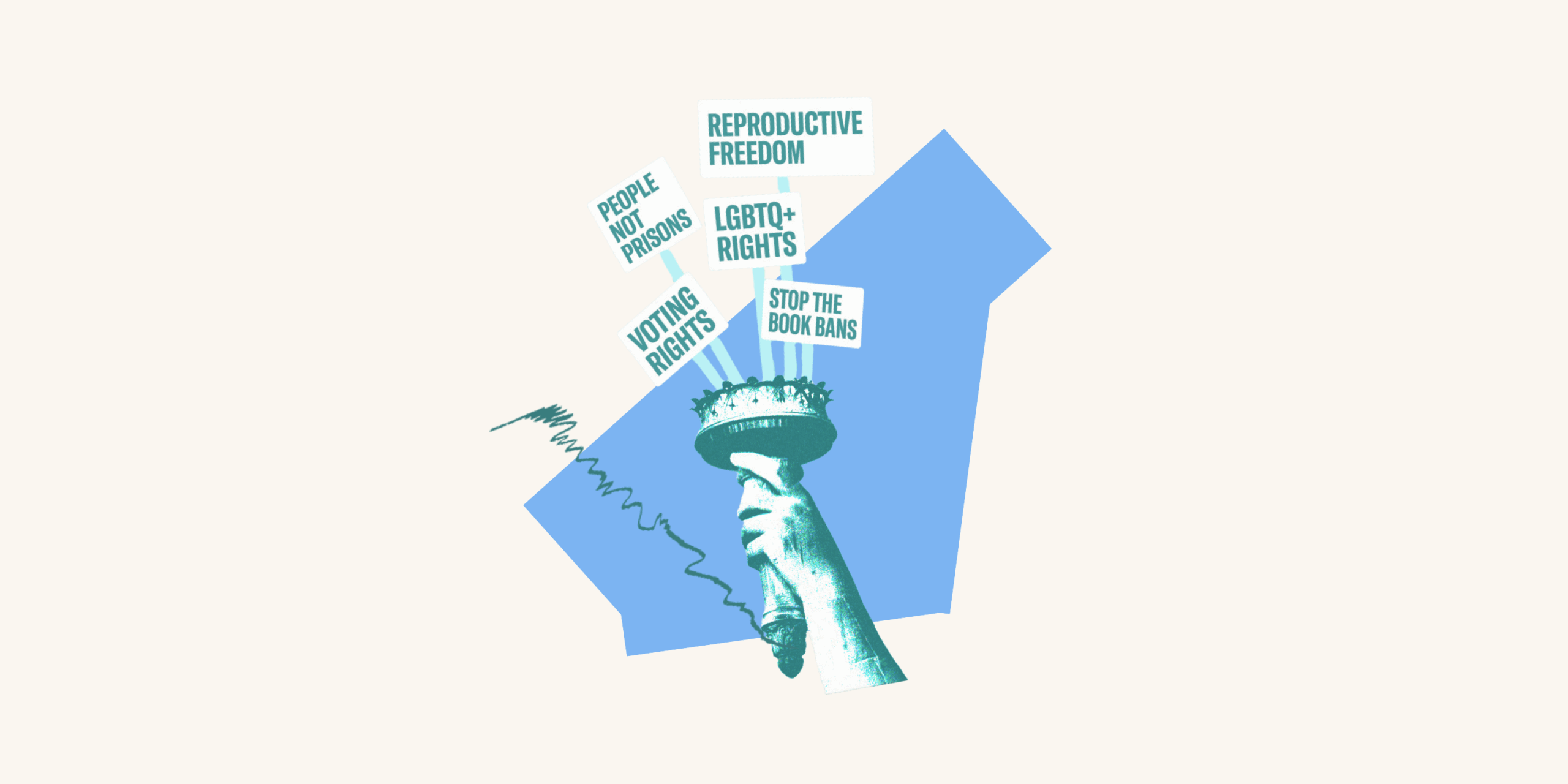Criminal Legal Reform
Virginia incarcerates too many people for far too long, and every level of the criminal legal system is plagued with racism, cruelty, and inadequate oversight.
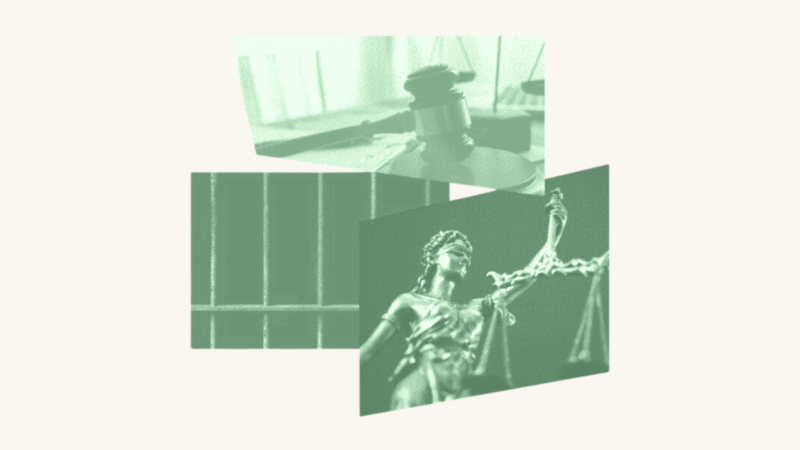
What you need to know
The Virginia Department of Corrections has an annual budget of $1.5 billion but zero independent oversight.
Steep prison and jail profiteering puts 1 in 3 families communicating with their incarcerated loved one into debt, according to the Ella Baker Center.
1 in 7 people held in Virginia are serving a life sentence, according to the Sentence Project, despite research that people "age out" of crime.
Every step of the criminal legal system – including law enforcement, criminal courts, jails and prisons, and reentry into society – is plagued with racism, cruelty, and inadequate oversight.
Virginia incarcerates too many people for far too long. We’re working to decrease the number of people incarcerated by 50 percent and reduce racial disparities at every level.
People who have been accused or convicted of a crime often don’t have the support they need. That’s why we advocate for those impacted by the criminal legal system:
- In 2020, we litigated and reached an agreement with the Virginia Department of Corrections (VADOC) forcing officials to publish data on the status of the COVID-19 pandemic in prisons, consider more people for early release to limit the spread of COVID, and ensure proper hygienic standards in all its facilities.
- We produced a report in 2018 on the use of solitary confinement in Virginia and the lifelong physical and mental harm it causes.
- Our documentary, “InJustice: Hidden Crisis in Virginia’s Prisons,” premiered in 2022. We interviewed incarcerated people, their families, activists and lawmakers to highlight the long-lasting, widespread impact that the prison system has on our communities.
We have a long way to go. Our criminal legal system is designed to keep people down without solving society’s problems. Politicians in some parts of Virginia win with “tough on crime” rhetoric, and Virginia’s policies often favor law enforcement agencies over communities. Every day, thousands of Virginians are held in jail without being convicted of a crime.
Small changes won’t cut it.
We need major reforms to our criminal legal system before the system can truly protect justice for all.
MAKE A DONATION today to support people. Not prisons.
SINCERE'S STORY
Sincere Allah was sentenced to 45 years in prison shortly after his 18th birthday. Facing a potential death sentence, he accepted a plea deal and spent 24 years in prison. He was pardoned by Gov. Northam and released on January 14, 2022.
While incarcerated, Sincere not only learned new trades, but also took business courses through UVA's Darden School of Business and sociology and economics classes through Washington & Lee University.
He even designed his own program on personal growth for a therapeutic community, led by incarcerated people. The pilot program he helped to create later expanded to 11 different VADOC facilities, supporting people with mental health and substance use disorders.
Since his release, Sincere continues to help people work through trauma and substance use disorders as a certified peer recovery specialist. He works alongside the ACLU of Virginia and other organizations to advocate for people who are incarcerated and help lawmakers understand the harsh realities of the criminal legal system.
Cases, Campaigns & Legislation
Leslie L. Puryear v. Dotson and Bailey
Jose Isais Garcia Vasquez v. Dotson and Darden
Take Action
Today, years of hard-fought civil liberty protections are under threat.
To influence lawmakers, we need everyone to get involved. Here are 3 actions you can take today.
Stay Informed
Sign up to be the first to hear about how to take action.
By completing this form, I agree to receive occasional emails per the terms of the ACLU’s privacy statement.
By completing this form, I agree to receive occasional emails per the terms of the ACLU’s privacy statement.


